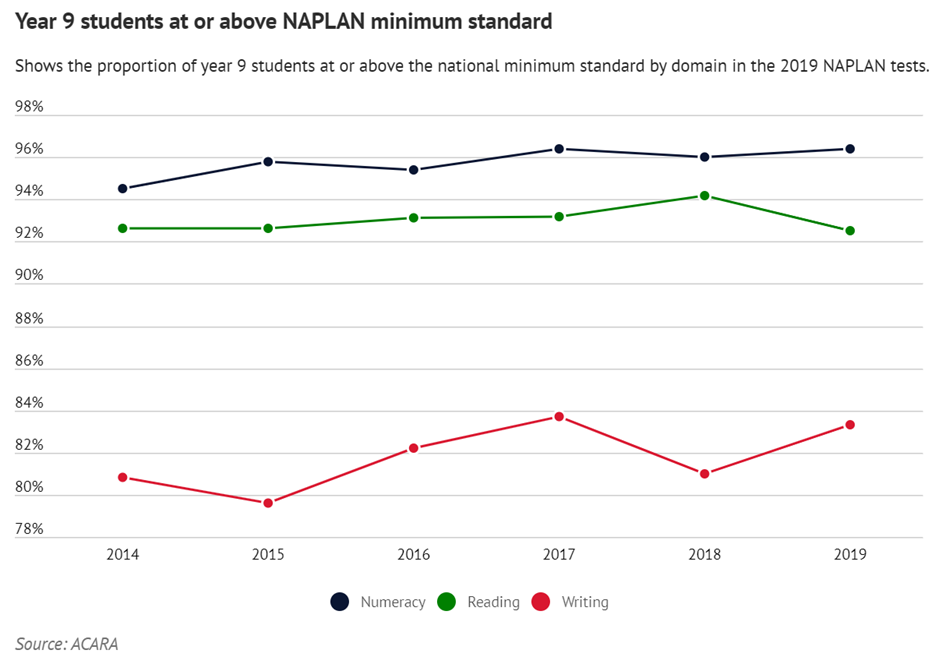
It’s another day of work and school. As you’ve done every other weekday morning for the last 9 years, you knock on your child’s bedroom door as a wake-up call. You open the door to discover he’s not in his room, but his Economics assignment is sitting on his study desk.
Knowing the assignment is due that day, you sneak a peek out of curiosity. It’s been a while since you’ve had any involvement in your children’s school assignments. Excitement grows within you as you look forward to reading the masterpiece that is before you.
As you turn the first page, that excitement quickly dissolves and re-emerges as disappointment. Why? Because the more you read, the more you realise that what you’re reading makes near to no sense. The structure is confusing, sentences incomplete and punctuation incorrectly used.
It’s too late to fix it now, he’ll be handing the assignment in to his teacher this very morning. There’s nothing you can do to rescue it and help your child get the mark you know he deserves.
What are they teaching him at that school? Is this the outcome of the hard-earned money you’ve invested in your child’s education?
Your story is not unlike that of many other parents with children approaching or in their early years of high school.
A recent review based on the results of the NAPLAN test revealed that many students reach Year 9 without the ability to write properly. In 2019, 23.6% of boys and 13.2% of girls in Year 9 were below the national minimum standards in writing. These figures are alarming!
Although NAPLAN has been criticised by many educators for its shortcomings, especially its writing assessment, it’s still recognised as a reliable indicator of key elements of students’ writing abilities.
NAPLAN data over the last 10 years shows high school students struggle with writing more than reading or numeracy. This clearly highlights the key lack of progress in writing skills.

The question is, why do writing skills lag behind other skills taught in school?
The moment your child steps into high school, it’s assumed they have developed the writing skills needed to achieve academic success. Yet that’s simply not true for all students.
A review of the way writing is taught in NSW schools found it has been widely neglected in high school. Thousands of students struggle with fundamental skills such as constructing clear sentences, structuring a good paragraph or expressing complex ideas.
However, high school is the time when students need to improve their writing skills further and combine this with their subject knowledge. These skills are necessary not only for English as a subject but also for Science, History, The Arts – any subject which requires complex ideas to be communicated with proper meaning.
Teaching patterns show an emphasis on the teaching basic writing skills in primary school, with lessons dedicated to spelling, grammar, punctuation, and constructing sentences. The time dedicated to writing declines significantly from Years 7 to 10 and increases again in Year 11 to 12 as part of HSC preparation. However, it is too late by then.
What is concerning is research shows that a student’s writing ability in Year 9 is a strong indicator of their success in Year 12. If developing essential writing skills is not prioritised in early high school years, what does that mean for your child’s HSC results? Or more importantly, for their future success in life?
The ability to write and communicate meaning effectively is crucial for future success.
The United Nations Educational, Scientific and Cultural Organisation (UNESCO) describes writing as a:
“… foundational skill required for communication, future learning and full participation in economic, political and social life as well as in many aspects of daily life.”
It’s not only important for your child’s success in their future years of schooling, but also as a valuable participant in the workforce. Think about it, what business can operate in today’s world without the ongoing exchange of emails?
We use fundamental writing strategies every day – planning, drafting, editing, and tailoring our language for a specific audience – these skills are often used without us realising it. The reason we can use them so effectively today as adults is because we were explicitly taught in school.
I don’t know about you, but I want my children to reach a higher level of success than I have. Effective written communication is a steppingstone toward such success.
The more you read on the topic of writing skills among Australian students, the more you see evidence of the blame game. Teachers, universities, politicians, parents, we all have a degree of responsibility when it comes to education.
The recent reviews are likely to prompt changes to the education system and curriculum to increase emphasis on teaching the skill of writing.
Until then, focus on what you can control as a parent. How can you contribute to improving your child’s writing skills from today?
“The best way to improve writing is to write, write and write some more.”
– Eva Gold (Head of the English Teachers Association)
One way to get started is with our English Courses. This course gives your child a competitive advantage in their writing abilities as well as all the components of the language that needs to be mastered before we even start talking about good writing skills. Our English writing specialists work with students and assist them in producing better quality writing. There is also the Become an Author Holiday course. It is an enjoyable experience especially for children who do not have that passion for writing. We help break that barrier.
Enrol your child for the full 5-day course. Give us a call on 1300 001 432 if you have any questions or need more information.







